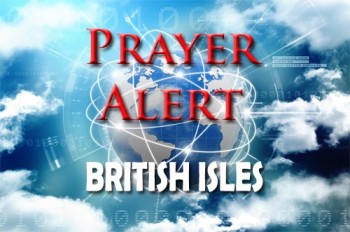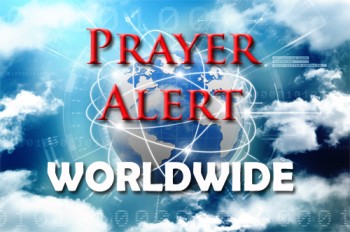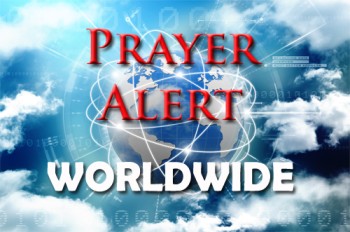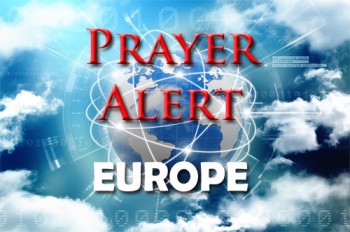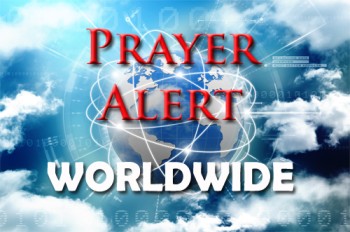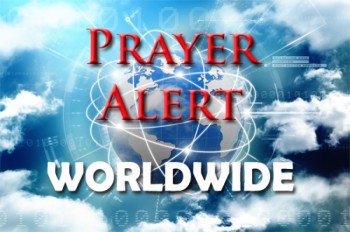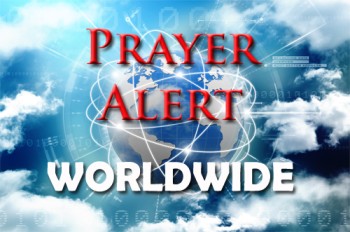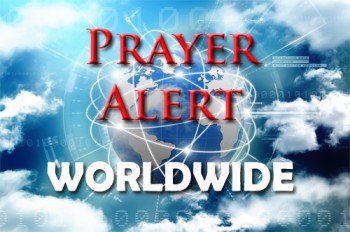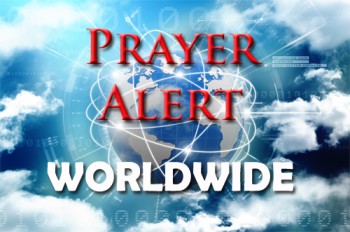Displaying items by tag: Iraq
UK signs deal with Iraq to speed up migrant returns
The Government has signed a new agreement with Iraq to accelerate the return of migrants who have no legal right to remain. Home office minister Dan Jarvis finalised the deal with Iraq’s deputy foreign minister, expanding cooperation on security, migration, and tackling smuggling networks - many run by Iraqi Kurds. While small-boat crossings overall remain at record highs, Iraqi arrivals have declined to 1,900 in the year to March 2025, down from 2,600 the previous year. The government argues this drop demonstrates the effectiveness of earlier cooperation. However, critics, including Conservative shadow home secretary Chris Philp, dismissed the new deal as 'measly’, pointing out that most small-boat arrivals are now from other nations. Not all Iraqis will be returned; about 26% have successfully claimed asylum on grounds of persecution. The agreement follows similar deals with Albania and Vietnam and a recent UK-France accord. Ministers insist such measures strengthen border security, while critics argue that crossings remain unacceptably high.
Iraq: new church at historic site of Ur
A bell has chimed for the first time at Ibrahim Al-Khalil Church in Ur, heralding its upcoming inauguration and marking a significant step in the region's religious and cultural landscape. The church, part of a larger complex honouring Abraham, aims to revive pilgrimage to the historic site and encourage the return of Christians to Iraq. It symbolises interfaith dialogue and offers a space for worship, social gatherings, and cultural activities. Designed with elements reflecting spirituality and history, the church hopes to attract tourists and strengthen ties between Muslims, Christians, and other minorities. Amidst challenges of war and sectarian violence, its completion signifies a new chapter, emphasising dialogue and reconciliation. With optimism for Iraq's reconstruction, the project's completion signals hope for a peaceful future, echoing the Pope’s message of peace and outreach amidst regional tensions.
Iraq: 100+ dead in wedding blaze
A fire at a Christian wedding celebration in Iraq's Nineveh province, near \Mosul, has resulted in over 100 deaths and at least 150 injuries. The blaze reportedly started after fireworks were lit during the celebration. Witnesses reported that the bride and groom survived, contrary to initial reports. The fire broke out in a large events hall, with up to 900 people in attendance. The building, made of highly flammable construction materials, quickly collapsed. Preliminary findings suggest that the hall's exterior was decorated with illegal, highly flammable cladding. Ambulances and medical crews were dispatched to the site, and efforts are being made to provide relief to those affected. The number of Christians in Iraq has significantly decreased in recent years, with the current estimate at 150,000 compared to 1.5 million in 2003.
Sweden: religious intolerance
Swedish police approved of burning a Bible outside Stockholm’s Israeli embassy. The decision follows similar Quran burnings which sparked outrage in the Islamic world. The demonstration was scheduled for Shabbat, when Israel's embassy is closed. A recent Swedish poll found most citizens support banning public burning of religious texts. Israel’s chief rabbi asked King Gustaf to utilise his influence so that the Bible burning does not take place, sending the message that Sweden stands against religious intolerance. Meanwhile on 20 July another Quran was desecrated in Sweden; the Iraqi government informed the Swedish government through diplomatic channels that any recurrence of burning of the Holy Quran on Swedish soil would necessitate severing diplomatic relations. See also world article 6, and
Iraq: religious intolerance
On 20 July Iraq expelled the Swedish ambassador only hours after protesters angered by the burning of the Quran in Sweden stormed the Swedish embassy in central Baghdad, scaling the walls of the compound and setting it on fire. Iraq’s prime minister also recalled his country’s chargé d’affaires in Sweden and suspended the working permit of Swedish telecom company Ericsson on Iraqi soil. The burning of the embassy was called by supporters of the influential Iraqi Shia religious and political leader Muqtada al-Sadr, to protest against the second planned burning of a Quran in front of the Iraqi embassy in Stockholm that day. However, although protesters in Sweden kicked and partially damaged the Quran, they did not burn it as promised. In Baghdad, all the Swedish embassy staff are safe. Sweden’s foreign ministry condemned the attack and highlighted the need for Iraqi authorities to protect diplomatic missions. See also Europe article 2, ‘Sweden: religious intolerance’.
Iraq: Christians still largely displaced
On 12th January the Commission on International Religious Freedom released its annual report, detailing key findings for religious persecution issues in Iraq. Iraqi religious minorities have been fighting for normalcy since the ISIS invasion a decade ago. Despite their efforts, tens of thousands of Christians are still displaced and unable to return to their homes as ISIS is still carrying out attacks periodically, causing fear among citizens about returning to their hometowns formally controlled by ISIS. Also, the Popular Mobilization Forces often block roadways making it increasingly difficult and dangerous to return to the Nineveh plains. Also continued airstrikes in northern Iraq by the Turkish military are disproportionately affecting religious minorities, making it unsafe to return to their communities. Turkey has made little effort to protect civilians during these airstrikes, despite calls from the communities for such consideration. Pray for provision for all the families that have been displaced.
Iraq / Lebanon: headed down a chaotic path
Governments in both Iraq and Lebanon struggle to function and pass legislation. Political parties tied to ethnic and religious groups vie for control. Iran-backed militias hold more power than the military. There are many parallels between Lebanon, Syria, and Iraq because the nation-state borders were drawn around them by colonial nations around a hundred years ago. Ethnic groups thrown together by these borders often find it difficult to make their own voices heard and cooperate. It is an ongoing process that is only successful if there has been a dictator or authoritarian government. There is government corruption. Young Iraqis are dissatisfied and are opening their eyes to opportunities for truth. South Iraq is seeing a time of harvest among the Shia community. Even though they face persecution by larger religious groups, they are boldly proclaiming the Gospel repeatedly to all peoples and all backgrounds or ethnic minorities or majorities in their communities. God is doing amazing things in the south.
Iraq: political dysfunction and violence
Moqtada al-Sadr won most parliamentary seats last October, but he refused to negotiate with Iran-backed Shia groups to form a government, causing a year of political instability. When he announced his retirement from politics on 29 August it caused an eruption of street fighting overnight, as fighters exchanged gunfire. Tracer rounds illuminated the night sky in some of the worst violence to hit Baghdad in recent years, including using heavy weaponry such as rocket-propelled grenades. Some fighting was between the Peace Brigades, a militia loyal to Mr Sadr, and members of the Iraqi military. Some fighters Iran closed its borders with Iraq amidst the fighting, and Kuwait urged its citizens to leave immediately. A UN spokesperson has called for ‘immediate steps’ to de-escalate the situation. Iraq's caretaker prime minister has declared a nationwide curfew after unrest in several other cities, and suspended cabinet meetings. By 31 August most violence had stopped, but the country’s crisis has only deepened. See
Christian radio in Iraq and Saudi Arabia
Iraqis, Muslims, Christians and those of no faith at all tune into a radio station vastly different from what is normally heard on Middle Eastern airwaves. ‘Saut al Salam’ or ‘Voice of Peace’ is broadcast from a tiny studio in Qaraqosh and reaches 150,000 listeners, living up to its name. The programmes have no politics or conflicts. The broadcasters tell stories about the church, Christianity and Christian life, dispelling many misconceptions in the Muslim world that are passed on from generation to generation. For instance thinking that Christians just like to party and drink alcohol. Saut al Salam is changing wrong perceptions with programs on raising children, Christian music, and reporting cultural church events. Their highest hope is that listeners, a majority of whom are not Christians, will hear a message of peace, consideration and love.
Iran / Lebanon / iraq / Syria / Yemen: jihad against Christians
Iran's proxy militias have caused the decline of Christians in many regions by adopting ‘forced immigration’. In Lebanon Hezbollah targets missionaries, impedes conversions, imposes strict dress codes and alcohol bans, and limits mixed sexes in public, in what have been dubbed ‘mini-Tehrans.’ A sizeable amount of land owned by Christians has been taken over by Hezbollah through eviction. In Iraq, initially employed to resist American forces, the Shiite Mahdi Army has changed the demography, Making Baghdad 'Christian-free' was high on its agenda when they morphed into IS. Iran had influence in Syria through the Assad family (Alawite Sunni). After the uprising Iran restructured the Syrian Army and created several militias within the Shia Liberation Army. It saved the Assad regime, killing 600,000 people, displacing 6.5 million internally, and forcing 6.6 million to flee Syria. In Yemen the Houthis have invested considerable effort into ending the Christian presence in the territories under their control.
